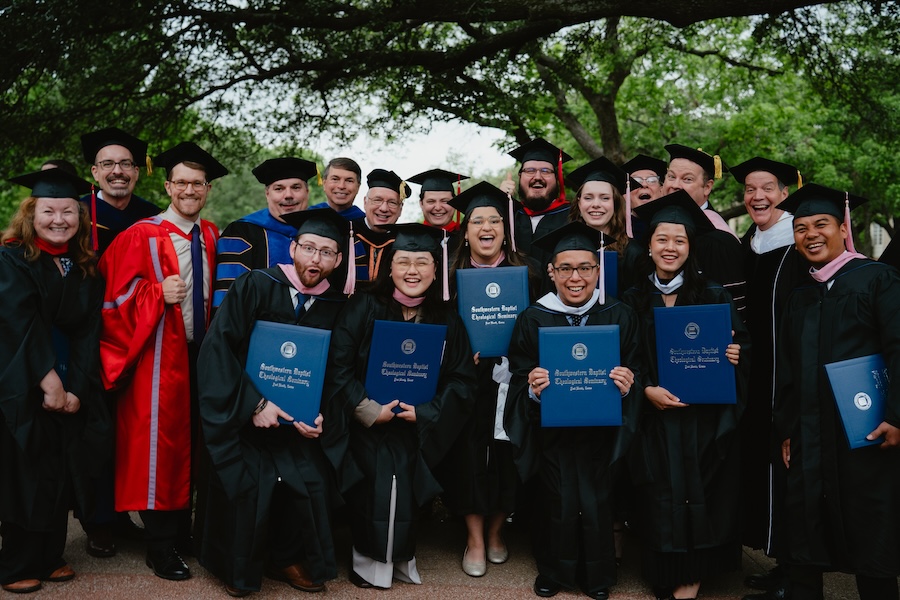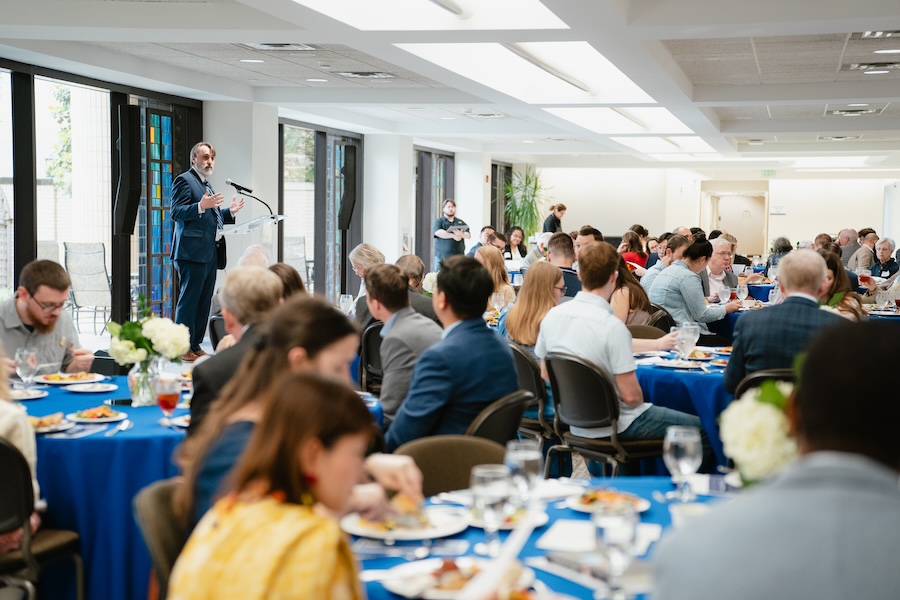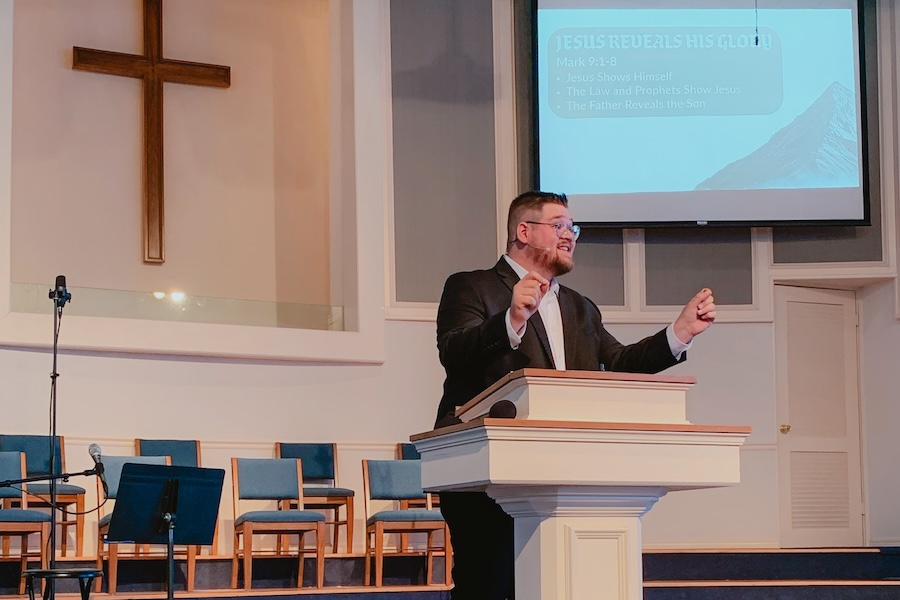Sandra Peoples uses personal experiences with special needs family members to train churches
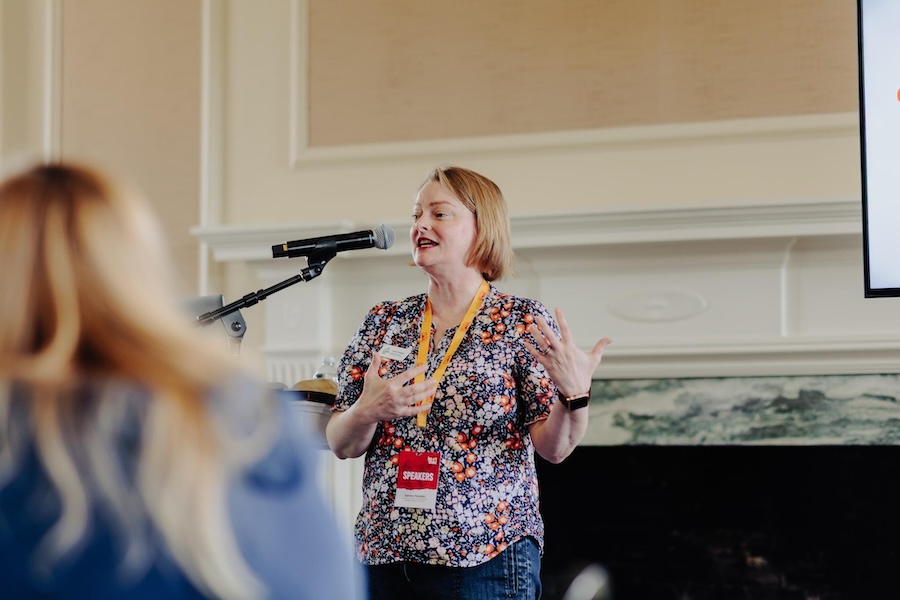
When Southwestern Baptist Theological Seminary PhD student Sandra Peoples recognized God’s call to ministry in her life as a teenager, she knew it was a call to discipleship and specifically women’s ministry. Little did she know at the time that God would use the special needs ministry of her family’s church to shape her calling.
Peoples was born in Oklahoma and grew up going to First Baptist Church in Duncan, where she was part of the fourth generation in her family that had been faithful members, volunteers, and leaders in the church.
Peoples recalls praying in her bedroom when she was seven years old with her mother, confessing her sins and her need for Jesus. From that early age, Peoples said she “saw the importance of plugging in and being part of a church family and serving with our gifts.”
While still a teenager, Peoples began to have the opportunity to use her gifts to help lead Bible studies for other girls and was also mentored by youth and children’s leaders. But while she was being invested in by other women, Peoples said the church had another lasting impact on her life in how they cared for her family and specifically her sister Sybil, who had Down syndrome.
Peoples said their church provided disability programs that supported her family as well as four other families. Of those families, Peoples said four of them now have siblings of the special needs members serving in full-time ministry.
“I just think about how if that church hadn’t accepted Sybil and welcomed her, then I couldn’t have attended either, and that really would have changed our family for generations, potentially,” Peoples said. “It certainly would have made it harder for us to love Jesus and love the church. So that church was a real gift to my family and to the families that attended.”
Peoples attended Hardin-Simmons for her undergraduate, taught for a year in Dallas, and then went to Southeastern Baptist Theological Seminary, where she met and married her husband Lee and had their first son. She was pregnant with their second son when she graduated with her Master of Divinity in Women’s Studies in 2007.
Upon graduating, Peoples began to lead women’s Bible studies and disciple other believers while her husband pastored. But in 2010, while they were living in Pennsylvania, their son James was diagnosed with autism, and they realized that the small church they were a part of, and many other Baptist churches in the nation, did not have programs and resources in place that would help their family and other special needs families. While she had grown up in a special needs family and in a church that supported families such as theirs, Peoples faced the realization that not all churches had that available to the congregation.
“What I had kind of taken for granted growing up wasn’t available to me as a mom,” Peoples said, adding that reality led to her “wanting to make churches more accessible and inclusive.”
Peoples’s husband spent time pastoring in North Carolina and Pennsylvania, and for the past 10 years in the Houston area, where Lee has pastored Heights Baptist Church in Alvin, Texas, for eight years. At each church, Peoples and her family helped create programs that would ensure their son and others could receive the discipleship opportunities they needed.
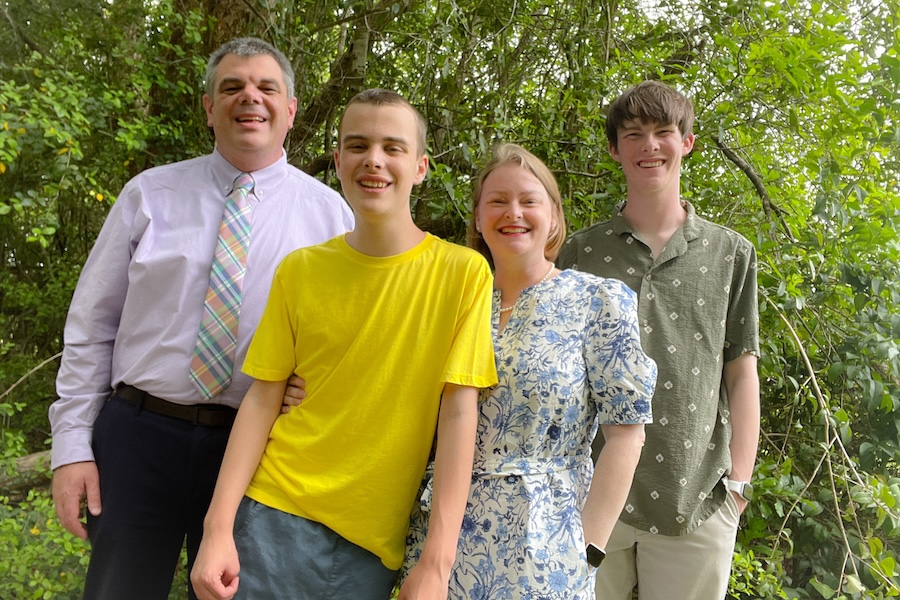
PhD student Sandra Peoples uses her family experiences and seminary education to help churches with special needs programs.
In 2021, she began working for the Southern Baptist of Texas Convention (SBTC) as their disability ministry consultant, SBTC being the first Baptist state convention to have that position, working closely with and for Karen Kennemur, Southwestern’s professor of children’s ministry and children’s and family ministry associate with the SBTC.
In working with the SBTC, Peoples has the opportunity to travel and provide training, visiting churches and assessing what their needs are as they provide a place for families with special needs to worship and fellowship.
In 2022, Peoples decided to continue her education at Southwestern as a PhD student with Kennemur as her supervisor.
“When I thought about getting my PhD, Southwestern was at the top of my list,” Peoples said, adding the online options were especially a blessing. “… I love the family ministry and generational studies area. It fits so well with my passion of inclusion for special needs families. So it really was just the perfect fit at the perfect time.”
Peoples said she has enjoyed the family ministry degree program at Southwestern, which has led her to look at her own experiences through a biblical lens, asking questions such as what discipleship looked like in the early church and the Old Testament, and to consider how families might have participated in the church.
“All of that has been really interesting to think through and then apply to our context,” Peoples said, adding she has enjoyed her classes and learning with her classmates.
Peoples said her Southwestern education has also helped her as she teaches classes at Liberty University on disability ministry, leading her to look at that ministry as discipleship for the entire family.
“We’re not just talking about programs for a kid with disabilities; we’re really talking about holistic discipleship, and how a church welcoming somebody with a disability allows their entire family to attend,” Peoples said.
Using her experiences of training churches, consulting with the SBTC, teaching at Liberty, and even joining churches that did not have resources available to her own family, Peoples authored Accessible Church: A Gospel-Centered Vision for Including People with Disabilities and Their Families, set for a July 1 release through Crossway.
Peoples said the catalyst for the book was hearing from so many churches asking the same questions about disability ministry and believing “that they’re starting from scratch because there just aren’t a lot of resources out there.”
The book looks at elements of disability ministry, including how it fits with other ministries of the church, how to disciple an individual with disabilities, and how to make the proclamation of the Gospel priority in that ministry. Specifically, Peoples said her studies at Southwestern led her to write the book focusing on ministering to the entire family, not just in the children’s ministry or to the individual with a disability.
“How do we support the whole family in our churches?” Peoples said of what sets her book apart from others. “And then how do we make sure that we’re building ministries that meet people with disabilities at every age and stage, because we don’t want the inclusion to end when they’re done with children’s ministry, or even done with youth, next-gen ministry.”
Peoples said this book is to help churches of all sizes, but that it is also more than just a how-to book as it looks at the theology of disability and what the Scriptures say about disabilities. She said leaders of any area of church ministry could benefit from the information.
In her studies at Southwestern, her writing, and her teaching, Peoples said “my goal is always just to help churches, [to] do that however I can as a pastor’s wife and as a consultant and as a professor, all these ways. The goal is just to make churches stronger and to help them, especially as they reach special needs families and people with disabilities.”
